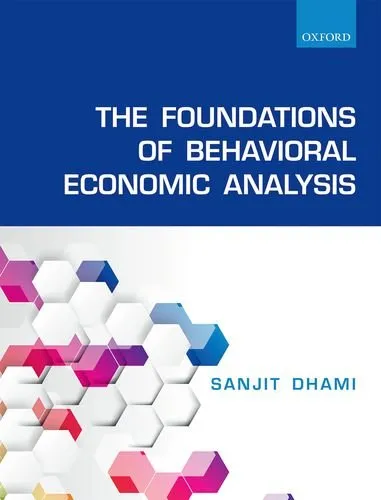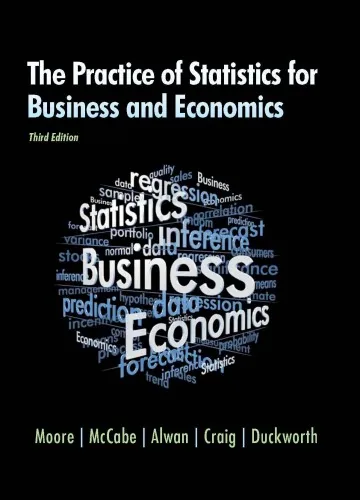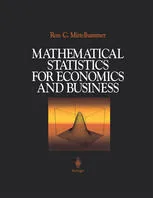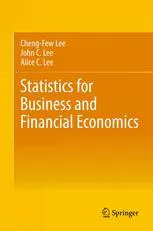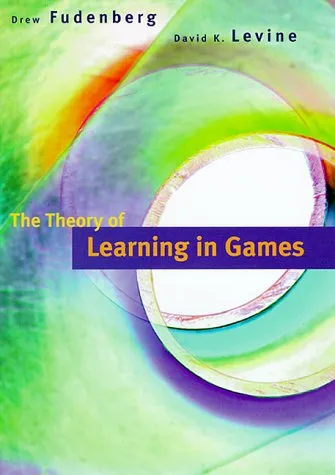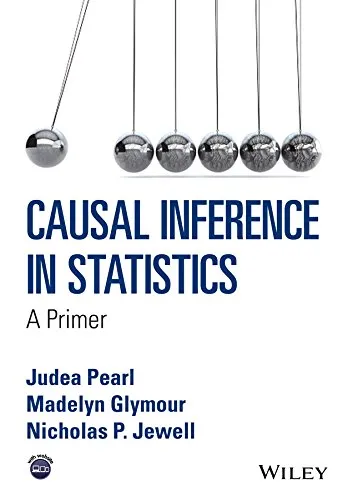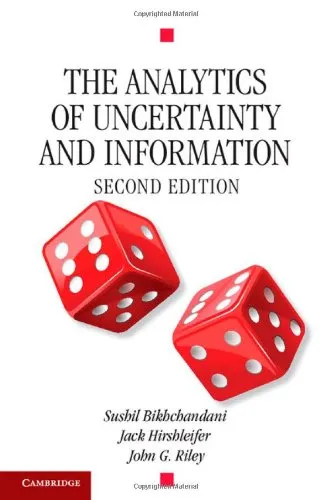The foundations of behavioral economic analysis
4.5
Reviews from our users

You Can Ask your questions from this book's AI after Login
Each download or ask from book AI costs 2 points. To earn more free points, please visit the Points Guide Page and complete some valuable actions.Related Refrences:
Introduction to "The Foundations of Behavioral Economic Analysis"
"The Foundations of Behavioral Economic Analysis" by Sanjit Dhami is a comprehensive and seminal work that explores the integration of psychological insights into the core principles of economics. This book is widely celebrated for its empirical rigor, theoretical innovation, and the clarity with which it communicates complex ideas. A thorough and expansive text, it serves as both a reference guide for seasoned researchers and an introductory pathway for those new to the field of behavioral economics.
This book is a groundbreaking attempt to consolidate decades of research in behavioral economics and provide a unifying framework to understand the field. By challenging many of the assumptions of classical economics, such as perfect rationality and self-interest, "The Foundations of Behavioral Economic Analysis" examines how real-world behavior often deviates in fascinating ways, leading to insights that are profoundly relevant to policy-making, business, and individual well-being. Through this exploration, readers are led to rethink fundamental economic concepts and models in light of human psychological biases, emotions, and social norms.
Detailed Summary of the Book
At its core, this book is organized around the central themes of behavioral economics. It starts by questioning the traditional economic models based on the rational agent and progresses to incorporate cognitive and emotional influences on decision-making. Behavioral economics rejects the notion that individuals always act in ways that maximize their utility. Instead, it considers the various limitations, biases, and heuristics that shape choices in real-world contexts.
The book is divided into key thematic areas, each addressing a significant facet of behavioral economic theory: behavioral decision theory, behavioral game theory, intertemporal choice, social and moral preferences, bounded rationality, and behavioral welfare economics. Each segment delves deeply into the psychological and empirical foundations underpinning human decision-making. Practical applications, from public policy to finance and marketing, are explored to demonstrate the field's relevance and broad potential.
Sanjit Dhami combines theoretical analyses with empirical findings to establish a clear linkage between behavioral anomalies and their economic implications. Through rigorous modeling, the book addresses questions like: How do mental shortcuts (heuristics) lead to biases? What role do emotions and social preferences play in decision-making? How can behavioral insights improve public policies, such as retirement savings or health interventions? The answers provided are not only academically enriching but also pragmatically useful for tackling real-world challenges.
Key Takeaways
- Behavioral economics blends psychology and economics to create more realistic models of human behavior.
- The assumption of perfect rationality in classical economics is often unrealistic; people are influenced by biases, emotions, and social norms.
- Concepts like heuristics, prospect theory, and fairness preferences are essential in explaining deviations from traditional economic predictions.
- Behavioral economics has far-reaching applications, influencing public policies, consumer behavior, and market design.
- By anchoring economic theory in the realities of human behavior, better solutions for social well-being can be devised.
Famous Quotes from the Book
"Behavioral economics does not reject rationality—it refines it by embedding rational choice in the context of realistic psychological foundations."
"Understanding human decision-making in its full complexity is not just about economic theory—it is about improving the human condition."
"The bridge between psychology and economics is a powerful one, capable of bringing new insights into how societies function and thrive."
Why This Book Matters
Behavioral economics has gained immense importance in recent years, revolutionizing how we approach economic theory and practice. This book serves as a foundational pillar in this field, meticulously assembling the disparate strands of research into a cohesive and accessible whole. For academics, policymakers, and professionals alike, "The Foundations of Behavioral Economic Analysis" provides not just a deep understanding of the field but also practical tools for application.
In an era where challenges like climate change, income inequality, and behavioral inertia necessitate bold and effective solutions, the insights of behavioral economics offer a powerful framework for crafting impactful policies. By addressing human behavior with all its complexities and imperfections, this book encourages economists and decision-makers to transcend traditional approaches and embrace more realistic, evidence-based strategies.
Ultimately, this book is a call to rethink economics in a way that is not only intellectually stimulating but also transformative for society. Whether you are an enthusiast hoping to understand why humans behave the way they do in economic settings or a scholar seeking a comprehensive text to advance your knowledge, "The Foundations of Behavioral Economic Analysis" is an essential resource.
Free Direct Download
You Can Download this book after Login
Accessing books through legal platforms and public libraries not only supports the rights of authors and publishers but also contributes to the sustainability of reading culture. Before downloading, please take a moment to consider these options.
Find this book on other platforms:
WorldCat helps you find books in libraries worldwide.
See ratings, reviews, and discussions on Goodreads.
Find and buy rare or used books on AbeBooks.
